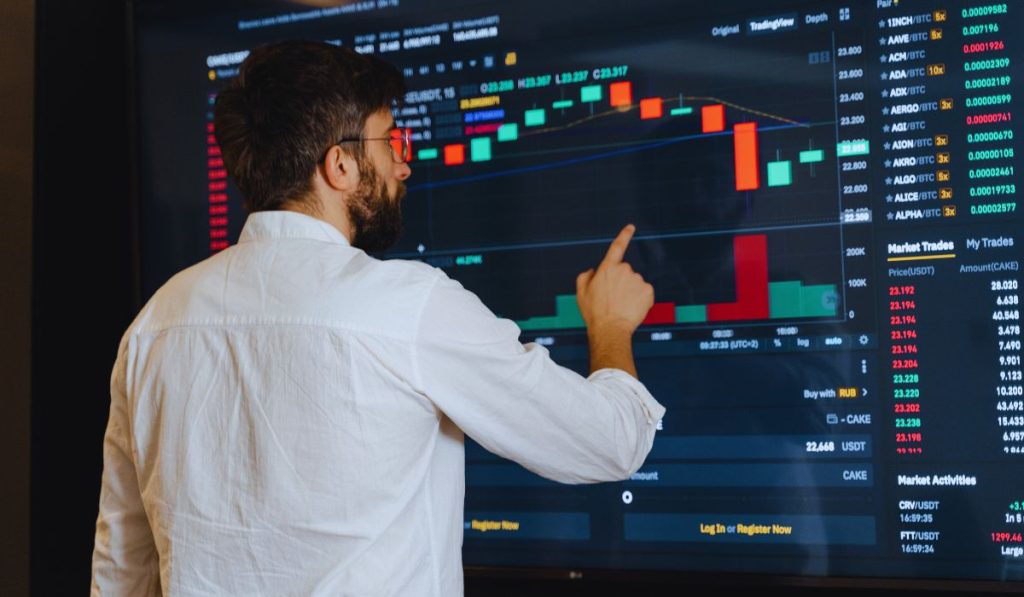What is a insider Trading: Decoding the invisible advantage of money markets
Time and information are of the essence in the financial world. And as far as when one may be in possession of information that is material, and not published, and acts upon it, and buys and sells a company stock, it approaches the borders of what is known as insider trading. What then is insider trading, and why is it such a burning issue in terms of stock markets and ethical standards?
Insider trading can be described as one of the most debatable and strictly regulated issues in the international financial systems. It is the buying or selling of the stock of a publicly traded business using such important but insider information that has not been disclosed to the market at large. It is commonly considered unfair and corrupt when it grants anyone/ organization an unfair advantage over other ordinary investors.

The Truism of Insider Trading
In order to know what insider trading then, it is necessary to clarify the constituents that will define it. Insider trading is simply the act of buying or selling the securities of a company by representatives who possess profound knowledge of information that has not been circulated yet. This may be in formthe of information on mergers, financial reports, lawsuits, product releases, regulatory approvals, or any other news that may influence the stock of the company. When the insiders make use of this privileged information and sell or buy something prior to the release of the news, they have a chance to gain profit or prevent loss in an unreasonable way. This destroys the trust of investors and undermines the financial markets.
Insider Trading and Its Legality
Not every insider trading is a criminal offense. The directors, employees, and executives of an organization are usually stockholders, and they are able to purchase or sell the stock legally. But when they take those actions, such transactions should be reported to financial regulators and be transacted in special trading windows. On the other hand, illegal insider trading occurs when the trades are based on material nonpublic information. Such transactions create a violation of trust and openness that mostly carry dire consequences, as in as much as fines, bars, and even jailing may be imposed.
The law in most jurisdictions concentrates on two points:
- The non-public and material information was used.
- The trader had a duty of keeping such information under wraps.
It is possible to find guilty in the case of insider trading even third parties who get the tip (referred to as the tippees) and take such action based on the information disclosed to them.
The Effect of Insider Trading on the Financial Market
To explain the meaning of insider trading, far-reaching consequences have to be looked at. When there is a distribution of information even amongst the financial market, it operates smoothly. Insider trading violates this balance and provides an opportunity to a few people to exploit information asymmetry.
This habit is doing harm to:
- Fairness in the market: Retail investors believe that to have done a wrongdoing when they are convinced that insiders are the ultimate winners in every situation.
- Credibility: Trust is a major tenet of finance. Alleged corruption also discourages the process.
- Price integrity: When the price of the stocks can be changed as a result of cancellations of secret trades, it will no longer be the true reflection of the company.
Governments and regulatory agencies like the U.S. Securities and Exchange Commission (SEC) are now tough on insider trading as governments have become interested in sing surveillance systems and whistleblower systems.
The Practical Examples of Insider Trading
The notion of insider trading becomes clearer when the cases in real life are considered. High-profile cases have been presented over the decade,,s making the headlines and establishing the legal precedents. The worst-known example associated with Galleon Group was that of Raj Rajaratnam, founder of the hedge fund. He had been found guilty of a scheme of insider trading involving more than 60 executives and analysts. Investigators were able to unravel a secret network that used tip-offs to trade in millions using wire taps. The case of Martha Stewart was another one. Although her case was not associated with direct insider trading, but deception of investigative agents, her case greatly led people to consider abuse of insider information. These instances and alerted to he dangers and ethical issues surrounding privileged information in the capital markets with the high stakes involved.
Present-day tough spot in the war against Insider Trading
With the world becoming more data-driven, the war on insider trading has even become more complicated. Regulators are struggling to keep up with encrypted messaging systems, systems that allow anonymous trading, and globalised markets.
- Digital communication: Data can be transmitted within seconds using encrypted applications, and it becomes complicated to track.
- Inter-state trade: It is possible to conceal transactions through international brokers.
- Algorithmic trading: Very fast trades are buried amid thousands of valid ones.
The challenges notwithstanding, artificial intelligence and big data analytics will be implemented to identify abnormal patterns and raise an alert on any suspicious activity. The regulators are also enhancing international collaboration to monitor and lay charges of cross-related crimes.
Corporate Governance and Ethical Ways of Looking at It
Looking at the question of what insider trading is, we should not omit the ethical aspect of the problem. Insider trading is at root a breach of guidance duty and trust. Corporate insiders are given information that is sensitive and on personal gains, and they are abusing their responsibility.
In business, good governance standards may reduce risks:
- Clearing of trading windows and blackout periods
- Enforcing pre-clearance of the trades by the highest executives
- Educating the employees with regard to compliance and ethical behavior.
- Having internal auditors or an ethics officer to check activity
- Establishing a clear and sound corporate environment instills long-term value and reputation.
- Consumer perception and Investor mood
Capital markets rely heavily on trust from the population. In cases where corruption in the form of insider trading comes to light, investors tend to run in the opposite direction of the scandalous company, and this affects the whole industry. As another example, the financial crisis raised suspicions of misconduct and fraud prevalence, causing a sharp fall in the market and extra inspections. The population lost trust in agencies that were supposed to safeguard the unsuspecting investor. That is why it is so important to support transparency and suppress insider trading, in order to keep the integrity of the market and secure equal opportunities.
Global Regulation Frameworks
Each country possesses its own laws and controlling bodies to fight against insider trading. Though the basic concepts remain identical, the strength differs in enforcement.
- United States, Insider trading is regarded as a federal offence, and the SEC has powerful enforcement powers.
- United Kingdom: The FCA is a regulatory body that investigates the financial markets and market abuse, such as insider trading.
- India: The Securities and Exchange Board of India (SEBI) has become stricter over the last few years,s, issuing obligatory disclosures.
- Australia, Canada, and Singapore: All of them have active models, which incorporate surveillance, punishment, a nd education programs.
This international agreement highlights that clean and transparent markets are important everywhere.
